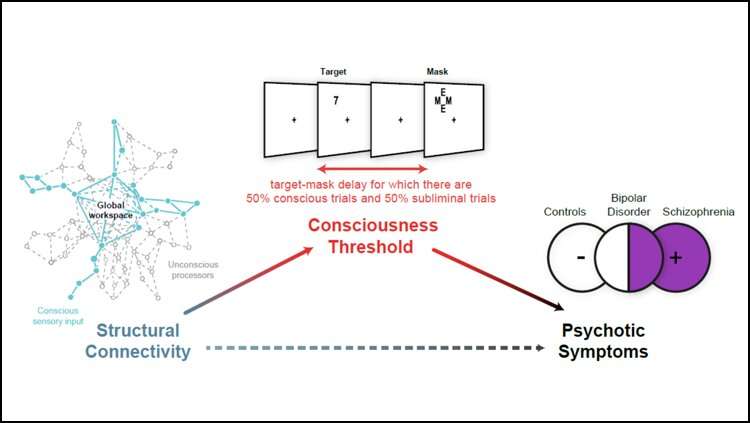
Altered white matter limits the brain’s conscious access to information, potentially contributing to delusions and other psychotic symptoms of mental health disorders, according to new research published in JNeurosci.
Your brain is always active, but you are not always aware of it. Accepted theory holds you do not become consciously aware of something until non-conscious brain activity in sensory areas spreads to a larger network of neurons all over the brain via long-distance white matter tracts. Dysfunction in these tracts may explain the delusions characteristic of psychiatric disorders like bipolar disorder and schizophrenia.
Berkovitch et al. used MRI to compare the white matter structure and consciousness threshold of healthy adults, bipolar disorder patients with and without psychotic symptoms, and schizophrenia patients. The consciousness threshold corresponds to how long a visual stimulus must be presented on a screen to be broadcasted across the brain and become conscious—the shorter it is, the better the conscious access. Thresholds were significantly increased in patients with psychosis compared to those without. Across all participants, lower thresholds correlated with greater white matter connectivity in long distance tracts.
Source: Read Full Article
